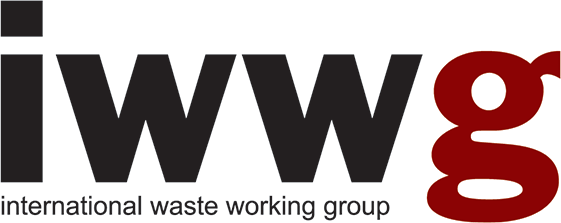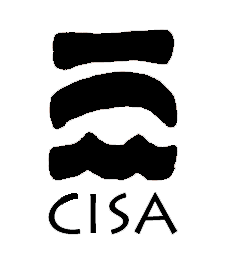EMPOWERING FOUNDRIES FOR SUSTAINABILITY: A USER-FRIENDLY ECO-DESIGN TOOL FOR ENVIRONMENTAL SELF-ASSESSMENT
- Federico Rossi - Interdisciplinary Center on Sustainability and Climate, Sant’Anna School of Advanced Studies, Italy
- Chiara De Bernardi - Interdisciplinary Center on Sustainability and Climate, Sant’Anna School of Advanced Studies, Italy
- Monia Niero - Interdisciplinary Center on Sustainability and Climate, Sant’Anna School of Advanced Studies, Italy
- Marco Frey - Interdisciplinary Center on Sustainability and Climate, Sant’Anna School of Advanced Studies, Italy
- Available online in Detritus - Volume 33 - December 2025
- Pages 106-114
Access restricted to subscribed members only
Released under All rights reserved
Copyright: © 2025 CISA Publisher
Abstract
Given the role of aluminum as a strategic resource for several decarbonization strategies, its global demand has experienced an exponential growth. However, aluminum production remains highly energy-intensive and environmentally impactful. Our objective is therefore to support aluminum foundries in addressing the challenge of reducing their environmental burden. For this purpose, this study introduces a software (named Eco-design tool) developed for Italian small and medium aluminum foundries. The tool enables self-assessment of environmental performance based on the Life Cycle Assessment (LCA) methodology, which evaluates the impacts of the foundry process – including emissions, energy use and waste management. Through a user-friendly interface, the tool collects site-specific data from seven production phases to calculate key environmental indicators. The main output is a preliminary environmental profile that helps companies identify critical impact areas and supports informed decision-making, strategic planning and continuous improvement, helping companies align with circular economy principles and reduce environmental impacts. The Eco-design tool is particularly valuable for small and medium-sized companies lacking the resources for full-scale LCA studies and can guide them toward environmental certifications. Future work will focus on expanding the dataset, improving usability, and validating the tool across a broader sample of foundries.Keywords
Editorial History
- Received: 16 Jun 2025
- Revised: 08 Sep 2025
- Accepted: 29 Sep 2025
- Available online: 10 Oct 2025
References
Appolloni, A., Chiappetta Jabbour, C.J., D’Adamo, I., Gastaldi, M., Settembre-Blundo, D., 2022. Green recovery in the mature manufacturing industry: the role of the green- circular premium and sustainability certification in innovative efforts. Ecol. Econ. 193 (December 2021), 107311
DOI 10.1016/j.ecolecon.2021.107311
Assofond (2025). Assofond website. https://www.assofond.it/foundries-in-italy#:~:text=Il%20comparto%20%C3%A8%20composto%20quasi%20esclusivamente%20da,l’1%%20delle%20imprese%20supera%20i%20250%20dipendenti.&text=185%20secondo%20gli%20ultimi%20dati%20ISTAT)%2C%20ma,di%20euro%20contro%204%2C9%20milioni%20di%20euro (accessed 28.05.2025)
Bassi, A., Biganzoli, S., Ferrara, F., Amadei, N., Valente, A., Sala, A., Ardente, S., 2023. Updated characterisation and normalisation factors for the Environmental Footprint 3.1 method.
DOI 10.2760/798894
Biberman, J., Toledano, P., Mohan, R.R. 2023. GHG Accounting Methods in the Aluminum Industry. New York: Columbia Center on Sustainable Investment (CCSI)
Bringezu, S., Moriguchi, Y. 2018. Material flow analysis. Chapter in: Bartelmus, P., & Seifert, E.K. 2003). Green Accounting (1st ed.). Routledge.
DOI 10.4324/9781315197715
Curran, M. A. 2017. Life Cycle Assessment Student Handbook. John Wiley & Sons. ISBN: 978-1-119-08354-2
Elshkaki, A., Graedel, T.E., Ciacci, L., Reck, B.K., 2018. Resource demand scenarios for the major metals. Environ. Sci. Technol. 52 (5), 2491–2497.
DOI 10.1021/acs.est.7b05154
European Aluminium Association, 2024. Environmental Profile Report For The European Aluminium Industry Full Report Life Cycle Inventory (LCI) data for aluminium production and transformation processes in Europe
European Aluminium. 2022. Standards & life cycle assessment. Retrieved from https://european-aluminium.eu/our-work/standards-life-cycle-assessment/
European Commission, Directorate-General for Internal Market, I. E. and Sme., Grohol, M., Veeh, C., 2023. Study on the critical raw materials for the EU 2023 – Final report. Publications Office of the European Union.
DOI 10.2873/725585
Fellner, J., Laner, D., Warrings, R., Schustereder, K., Lederer, J., 2018. Potential impacts of the eu circular economy package on the utilization of secondary resources. Detritus, 2(1), 16.
DOI 10.31025/2611-4135/2018.13666
Finnveden, G., Hauschild, M. Z., Ekvall, T., Guinéé, J., Heijungs, R., Hellweg, S., Koehler, A., Pennington, D., Suh, S. 2009. Recent developments in Life Cycle Assessment. J. Environ. Manag., 91(1), 1-21.
DOI 10.1016/j.jenvman.2009.06.018
Frischknecht, R., Jungbluth N., Althaus H. J., Doka G., Dones R., Heck, T., Hellweg S., Hischier R., Nemecek T., Rebitzer G., Spielmann M. (2005). The ecoinvent database: overview and methodological framework (7 pp). The international journal of life cycle assessment, 10, 3-9
Glasson, J., Therivel, R., & Chadwick, A. 2013. Introduction to Environmental Impact Assessment. Routledge.
DOI 10.4324/9781315881218
Gómez-Garza, R., Güereca, L.P., Padilla-Rivera, A., Padilla-Rivera, A., Ibarra, A.A. 2024. Barriers and enablers of life cycle assessment in small and medium enterprises: a systematic review. Environ. Dev. Sustain.
DOI 10.1007/s10668-024-05622-1
Hauschild, M.Z., Rosenbaum, R.K., Olsen, S.I., (Eds.)., 2018. Life Cycle Assessment. Springer International Publishing, Cham.
DOI 10.1007/978-3-319- 56475-3
International Aluminium Institute, 2023. International Aluminium Institute website
Madan, J., Singh, P.P., 2023. Sustainability in foundry and metal casting industry. In: Sustainable Manufacturing Processes. Elsevier, pp. 29–52.
DOI 10.1016/ B978-0-323-99990-8.00003-5
Milovanoff, A., Posen, I. D., & MacLean, H. L. 2021. Quantifying environmental impacts of primary aluminum ingot production and consumption: A trade-linked multilevel life cycle assessment. J. Ind. Ecol., 25(1), 67-78.
DOI 10.1111/jiec.13051
Monteleone, B., Baldereschi, E., Fabbri, N., De Bernardi, C., Frey, M. 2024. A sustainability assessment of the foundry production process in Italy. Sustainable Production and Consumption, 46, 491-501.
DOI 10.1016/j.spc.2024.03.005
Norgate, T.E., Jahanshahi, S., Rankin, W.J., 2007. Assessing the environmental impact of metal production processes, J. Clean. Prod., 15, 8-9.
DOI 10.1016/j.jclepro.2006.06.018
Ortiz, E., Marín, S., Thompson, P. 2023. The role of small- and medium-sized practices in the sustainable transition of SMEs. Env. Devel. Sust., 26:19299–19323.
DOI 10.1007/s1066 8-023-03507-3
Rossi, F., De Bernardi, C., Frey, M., Niero, M. 2025. From past critiques to present challenges: A review of LCA approaches and results in the aluminum industry, Waste Manag., 204, 114900.
DOI 10.1016/j.wasman.2025.114900
Santero, N., Hendry, J., 2016. Harmonization of LCA methodologies for the metal and mining industry. Int J Life Cycle Assess 21, 1543–1553.
DOI 10.1007/s11367-015-1022-4
Singh, M. P., Chakraborty, A., Roy, M., & Tripathi, A. 2021. Developing SME sustainability disclosure index for Bombay Stock Exchange (BSE) listed manufacturing SMEs in India. Environment Develop- ment and Sustainability, 23(1), 399–422.
DOI 10.1007/s10668-019-00586-z
Testa, F., Nucci, B., Iraldo, F., Appolloni, A., Daddi, T. 2017. Removing obstacles to the implementation of LCA among SMEs: A collective strategy for exploiting recycled wool. J. Clean. Prod., 156, 923–931.
DOI 10.1016/j.jclepro.2017.04.101
The Aluminum Association, 2023. The Aluminum Association website [WWW Document]. URL https://www.aluminum.org/ (accessed 12.21.23)
Xiao, L., Wang, Y., Zheng, R., Liu, J., Zhao, J., Maraseni, T., Qian, G. 2023. Identification of recycling pathways for secondary aluminum dross with integrated hybrid life cycle assessment. Resour. Conserv. Recycl. 193, 106987.
DOI 10.1016/j.resconrec.2023.106987



